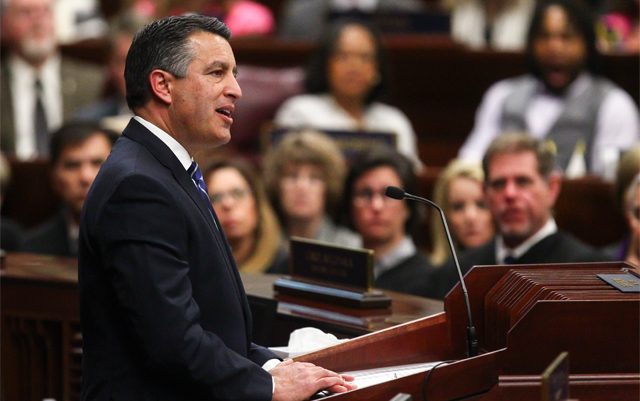Those who govern our states seem to change their attitudes pretty quickly after voters have made the decision to legalize adult use of cannabis. Nevada’s Governor was quick to jump on the idea of creating an additional excise tax on commercial cannabis sales – an additional 10% – that would specifically go towards funding for public education. This new proposed excise tax would be in addition to the 15% tax that was approved by voters as a part of Question 2.
“My budget includes one new source of revenue, a 10 percent excise tax on all retail sales of recreational marijuana,” Sandoval said. “The proceeds of this tax will be invested exclusively in education.”
In creating this proposed new tax the Governor has already included it into his budget for the next couple of years – which is expected to be $8.3 billion – which is $1 billion more than the previous budget. But he believes that this tax, on top of the funds left over from the original 15% wholesale tax, which will be used to cover the costs of overseeing the new industry, should go to the State Distributive School Account.
Some people are worried that this additional tax will drive people to continue buying their marijuana on the black market, especially since there is already an additional tax on the plant, and this would put a total 25% tax on the sale of the cannabis. In Colorado, where cannabis was first legalized for adult use, there is an additional 10% tax (which is collected by the state from cultivators), but is ultimately paid for by consumers at the register when they purchase the herb in a dispensary.
On top of the additional 10% generally paid, some counties and cities have approved additional taxes (usually 2-5%) which have been used to pay for things like scholarship funds, among others. However, this is nothing compared to the potential tax facing Nevada, which is more similar to that of Oregon, who legalized cannabis in 2014 and has had legal sales since October 2015.
For Oregon cannabusinesses, some are finding that it is easier to swallow the tax – pay it themselves and charge a lower total price for the product in order to keep customers – which may be a route that some Nevada business owners will have to consider taking. However, the fact that these states are still pulling in revenue and finding that the black market for marijuana is slowly dwindling proves that, in most cases, consumers are fine with paying a little more for their weed when it doesn’t come with the risk associated with a black market purchase – especially when the funds benefit schools and education.
“Overall, I think it’s going to be something to work with because Nevada has an opportunity here and they’re going to take it in one form or another,” Adler said.
While this new tax may not be the most convenient for Nevada residents, it is still not the worst thing that they could see happening with Question 2. Unlike other states that passed initiatives last November, they have not seen a push for delays or proposed major changes to the law that was passed by voters. And while an additional tax will push the price upward, the trend seems to be that the price starts off high in a legal market, but as the illegal market fades away the price will eventually drop for the industry.






